2018 - 2019 Events
History, Memory, and Meaning
October 10: Past is Prologue: A Journey of Discovery – with Barbara Michelman
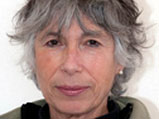
Paneriai is the Lithuanian name for Ponar (Ponary in Polish), the site of one of the worst massacres of Jews during World War II. For Barbara Michelman Panieriai is a landscape of loss and silence – a silence exemplified by her father who was born there. Though he escaped the slaughter, he was nevertheless broken by its haunting dimensions. In her solo-exhibition Past is Prologue, a series of photo montages with text, Michelman takes a journey of discovery into her family's Lithuanian past. The result is a fascinating palimpsest of images echoing with the voices of the vanished. In addition to her talk, part of Michelman's exhibit will be on display in Geisel Library West, 2nd (main) Floor from September 24 – December 13, 2018. Michelman studied art history in Florence, Italy and graduated with a BA in philosophy from UC Berkeley. She did post-graduate work in film at SFSU and in sociology and psychology at Humboldt State University. One of the first women in the Lighting Union in Hollywood, she began her career working in all the major film studios. A prolific photographer and digital artist, she resides in the Bay Area.
Link: Past is Prologue
November 8: Life in Crazy Times: An American Internee in War-torn Europe – with Lou de Beer
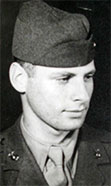 “I live in crazy times,” Anne Frank wrote in her attic on the Prinsengracht in Amsterdam. Lodewyk “Lou” de Beer might have echoed that sentiment, though his life was not in immediate danger. The son of American parents, Lou was born in Amsterdam. As a boy he witnessed the arrival of the German troops in 1940 and lived through 18 months of occupation. When the US joined the war against Germany, the de Beers were declared enemy aliens and subjected to a lengthy odyssey through concentration and internment camps in Holland, France, and Germany. On the periphery of the war and the Holocaust, Lou caught glimpses of devastation and oppression without fully grasping their significance, though he would experience the hardship of war firsthand during his service in Korea in the fifties. His experience adds an important and generally overlooked angle to the history of the Second World War in Europe.
“I live in crazy times,” Anne Frank wrote in her attic on the Prinsengracht in Amsterdam. Lodewyk “Lou” de Beer might have echoed that sentiment, though his life was not in immediate danger. The son of American parents, Lou was born in Amsterdam. As a boy he witnessed the arrival of the German troops in 1940 and lived through 18 months of occupation. When the US joined the war against Germany, the de Beers were declared enemy aliens and subjected to a lengthy odyssey through concentration and internment camps in Holland, France, and Germany. On the periphery of the war and the Holocaust, Lou caught glimpses of devastation and oppression without fully grasping their significance, though he would experience the hardship of war firsthand during his service in Korea in the fifties. His experience adds an important and generally overlooked angle to the history of the Second World War in Europe.
Link: Life in Crazy Times
January 17: When Biology Became Destiny: How Historians Interpret Gender in the Holocaust – with Marion Kaplan
With support from Muir College and Sixth College
 Despite the explosive growth of Holocaust studies, scholars of Nazi Germany and the Shoah long neglected gender as an analytical category. The essay collection When Biology Became Destiny: Women in Weimar and Nazi Germany, published in 1984 and edited by Renate Bridenthal, Atina Grossman, and Marion Kaplan, attempted to raise awareness of women's experiences under fascism. A pioneering work in every sense, the book explored German-Jewish women's “double jeopardy” as women and as Jews. In this lecture, Kaplan takes the audience on a historical tour of this research, from the first workshops raising questions, to the first publications providing answers. Since then, the gendered perspective has provided significant insight into our understanding of Jewish life in Nazi Germany and during the Holocaust. Kaplan concludes her talk with a forward look at new areas of research that highlight women's and gender studies. She is the Skirball Professor of Modern Jewish History at NYU and the three-time winner of the National Jewish Book Award for her books The Making of the Jewish Middle Class: Women, Family and Identity in Imperial Germany (Oxford University Press, 1991); Between Dignity and Despair: Jewish Life in Nazi Germany (Oxford University Press, 1998); and Gender and Jewish History, co-edited with Deborah Dash Moore (Indiana University Press, 2011).
Despite the explosive growth of Holocaust studies, scholars of Nazi Germany and the Shoah long neglected gender as an analytical category. The essay collection When Biology Became Destiny: Women in Weimar and Nazi Germany, published in 1984 and edited by Renate Bridenthal, Atina Grossman, and Marion Kaplan, attempted to raise awareness of women's experiences under fascism. A pioneering work in every sense, the book explored German-Jewish women's “double jeopardy” as women and as Jews. In this lecture, Kaplan takes the audience on a historical tour of this research, from the first workshops raising questions, to the first publications providing answers. Since then, the gendered perspective has provided significant insight into our understanding of Jewish life in Nazi Germany and during the Holocaust. Kaplan concludes her talk with a forward look at new areas of research that highlight women's and gender studies. She is the Skirball Professor of Modern Jewish History at NYU and the three-time winner of the National Jewish Book Award for her books The Making of the Jewish Middle Class: Women, Family and Identity in Imperial Germany (Oxford University Press, 1991); Between Dignity and Despair: Jewish Life in Nazi Germany (Oxford University Press, 1998); and Gender and Jewish History, co-edited with Deborah Dash Moore (Indiana University Press, 2011).
February 6: 49,172: The Rescue of Bulgaria's Jews – with Atanas Kolev
Sponsored by Daniel and Phyllis Epstein
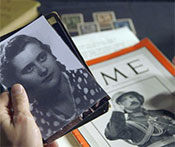 The fate of Bulgarian Jewry during World War II is one of the few uplifting stories associated with the Holocaust. Because of the intervention of a handful of courageous individuals including King Boris III, exarch Stefan, and metropolitan Kiril, Bulgaria's Jewish minority escaped extermination on the hands of the Nazis and their collaborators. In this documentary a team of US-based Bulgarian filmmakers combines the perspective of the 49,172 men, women, and children whose life was imperiled by the threat of deportation and death and the people who refused to submit to the genocidal agenda of the Axis powers. Drawing on private and public archives in the US, Israel, and Bulgaria, the film depicts a mosaic of faces and stories woven together by the courage and resourcefulness of individuals in both powerful and powerless positions. The screening will be followed by a conversation with producer Atanas Kolev.
The fate of Bulgarian Jewry during World War II is one of the few uplifting stories associated with the Holocaust. Because of the intervention of a handful of courageous individuals including King Boris III, exarch Stefan, and metropolitan Kiril, Bulgaria's Jewish minority escaped extermination on the hands of the Nazis and their collaborators. In this documentary a team of US-based Bulgarian filmmakers combines the perspective of the 49,172 men, women, and children whose life was imperiled by the threat of deportation and death and the people who refused to submit to the genocidal agenda of the Axis powers. Drawing on private and public archives in the US, Israel, and Bulgaria, the film depicts a mosaic of faces and stories woven together by the courage and resourcefulness of individuals in both powerful and powerless positions. The screening will be followed by a conversation with producer Atanas Kolev.
February 27: Defiance and Protest: Forgotten Acts of Individual Jewish Resistance in Nazi Germany – with Wolf Gruner
Sponsored by Laurayne Ratner
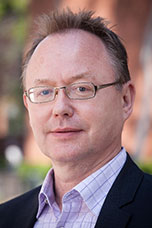 It is a common misconception that Jews submitted passively to Nazi persecution. In reality, a significant number of German Jews defied anti-Jewish laws, restrictions, and violence on the local and national level, some even going as far as to protest in public. In this talk Wolf Gruner challenges the simplistic assumption of Jewish inaction in the face of ever worsening discrimination and oppression. Drawing on various new sources such as the logbooks of Berlin police precincts, trial materials from various German cities, as well as video testimonies held in the Shoah Foundation's Visual History Archive, he demonstrates the prevalence of individual acts of resistance by German Jews from 1933 to 1945. Gruner is the Shapell-Guerin Chair in Jewish Studies and Professor of History at USC and the director of the Center for Advanced Genocide Research. His many publications include Jewish Forced Labor under the Nazis: Economic Needs and Racial Aims (Cambridge University Press) and Die Judenverfolgung im Protektorat Böhmen und Mähren. Lokale Initiativen, zentrale Entscheidungen, jüdische Antworten 1939-1945, the winner of the Sybil Halpern Milton Memorial Book Prize of the German Studies Association 2017.
It is a common misconception that Jews submitted passively to Nazi persecution. In reality, a significant number of German Jews defied anti-Jewish laws, restrictions, and violence on the local and national level, some even going as far as to protest in public. In this talk Wolf Gruner challenges the simplistic assumption of Jewish inaction in the face of ever worsening discrimination and oppression. Drawing on various new sources such as the logbooks of Berlin police precincts, trial materials from various German cities, as well as video testimonies held in the Shoah Foundation's Visual History Archive, he demonstrates the prevalence of individual acts of resistance by German Jews from 1933 to 1945. Gruner is the Shapell-Guerin Chair in Jewish Studies and Professor of History at USC and the director of the Center for Advanced Genocide Research. His many publications include Jewish Forced Labor under the Nazis: Economic Needs and Racial Aims (Cambridge University Press) and Die Judenverfolgung im Protektorat Böhmen und Mähren. Lokale Initiativen, zentrale Entscheidungen, jüdische Antworten 1939-1945, the winner of the Sybil Halpern Milton Memorial Book Prize of the German Studies Association 2017.
Link: Defiance and Protest
April 10: The Holocaust and the Human Rights Revolution: The Problem of Genocide Recognition Since the 1940s – with Dirk Moses
Sponsored by Michelle and William Lerach
With support from Eleanor Roosevelt College, Revelle College, and Thurgood Marshall College
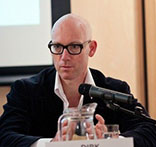 The suite of international conventions and declarations about genocide, human rights, and refugees after the Second War is known as the “human rights revolution.” It is regarded widely as humanizing international affairs by implementing the lessons of the Holocaust. In this presentation, Dirk Moses questions this rosy picture by investigating how persecuted peoples have invoked the Holocaust and made analogies with Jews to gain recognition as genocide victims. Such attempts rarely succeed and have been roundly condemned as cheapening the Holocaust memory, but how and why does genocide recognition require groups to draw such comparisons? Does the human rights revolution and image of the Holocaust as the paradigmatic genocide humanize postwar international affairs as commonly supposed? Dirk Moses is Professor of Modern History at the University of Sydney. Between 2011 and 2016, he held the Chair of Global and Colonial History at the European University Institute, Florence. His prizewinning book, German Intellectuals and the Nazi Past (2007) examined how West German intellectuals related the national disastrous to the construction of republican democracy. Moses has also written extensively about genocide, memory, and global history. Recent anthologies include Colonial Counterinsurgency and Mass Violence: The Dutch Empire in Indonesia (2014), Postcolonial Conflict and the Question of Genocide: The Nigeria-Biafra War, 1967–1970 (2018), and The Holocaust in Greece(2018). He is senior editor of the Journal of Genocide Research.
The suite of international conventions and declarations about genocide, human rights, and refugees after the Second War is known as the “human rights revolution.” It is regarded widely as humanizing international affairs by implementing the lessons of the Holocaust. In this presentation, Dirk Moses questions this rosy picture by investigating how persecuted peoples have invoked the Holocaust and made analogies with Jews to gain recognition as genocide victims. Such attempts rarely succeed and have been roundly condemned as cheapening the Holocaust memory, but how and why does genocide recognition require groups to draw such comparisons? Does the human rights revolution and image of the Holocaust as the paradigmatic genocide humanize postwar international affairs as commonly supposed? Dirk Moses is Professor of Modern History at the University of Sydney. Between 2011 and 2016, he held the Chair of Global and Colonial History at the European University Institute, Florence. His prizewinning book, German Intellectuals and the Nazi Past (2007) examined how West German intellectuals related the national disastrous to the construction of republican democracy. Moses has also written extensively about genocide, memory, and global history. Recent anthologies include Colonial Counterinsurgency and Mass Violence: The Dutch Empire in Indonesia (2014), Postcolonial Conflict and the Question of Genocide: The Nigeria-Biafra War, 1967–1970 (2018), and The Holocaust in Greece(2018). He is senior editor of the Journal of Genocide Research.
May 8: I am Lubo: A Hidden Life – with Louis Pechi
Lou Dunst Memorial Lecture
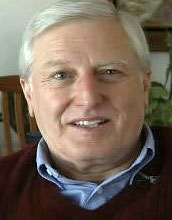 Louis “Lubo” Pechi was born in the Croatian city of Zagreb. He was seven years old when the Germans invaded Yugoslavia. In response to the mounting anti-Semitic repression and strict laws prohibiting Jews from traveling, the Pechis converted to Catholicism so that they could escape to safety in Italy. The move marked a lengthy process of hiding: Lubo had to change his name, religion, and identity. The Pechi family finally managed to escape and make their way to Rome. Decades later, Lubo began the arduous process of recovering the memories of his hidden life by writing his memoir I am Lubo: A Child Survivor from Yugoslavia.
Louis “Lubo” Pechi was born in the Croatian city of Zagreb. He was seven years old when the Germans invaded Yugoslavia. In response to the mounting anti-Semitic repression and strict laws prohibiting Jews from traveling, the Pechis converted to Catholicism so that they could escape to safety in Italy. The move marked a lengthy process of hiding: Lubo had to change his name, religion, and identity. The Pechi family finally managed to escape and make their way to Rome. Decades later, Lubo began the arduous process of recovering the memories of his hidden life by writing his memoir I am Lubo: A Child Survivor from Yugoslavia.
Link: I am Lubo
June 5: Nazi Perpetrators: Ordinary Men or Hitler's Minions? – with Christopher Browning
Sponsored by Judi Gottschalk
With support from the Department of History
 Every once in a while a book comes along that changes the way we think about major issues. More than 25 years ago, the publication of Christopher Browning's Ordinary Men: Reserve Police Battalion 101 and the Final Solution in Poland did just that. Meticulously researched and eloquently argued, Ordinary Men asserted that the men who helped commit genocide during World War II were neither fanatical ideologues nor bloodthirsty beasts but simply ordinary men operating within the context of a vicious race war. These findings which draw on insights from social psychology transcend the merely historical and carry disturbing implications for human beings everywhere. In this talk Browning revisits his path-breaking book and discusses the evolution of perpetrator studies up to the present. Professor emeritus at UNC Chapel Hill and an internationally recognized authority on Nazi policy and decision-making, Browning is the author of major studies including Nazi policy, Jewish workers, German killers (Cambridge University Press, 2000): Collected memories : Holocaust History and Postwar Testimony(University of Wisconsin Press, 2003); The Origins of the Final Solution : The Evolution of Nazi Jewish Policy, September 1939 – March 1942 (University of Nebraska Press, 2004); and Remembering Survival: Inside a Nazi Slave-Labor Camp ( W.W. Norton & Co., 2010), winner of the Yad Vashem International Book Prize for Holocaust Research.
Every once in a while a book comes along that changes the way we think about major issues. More than 25 years ago, the publication of Christopher Browning's Ordinary Men: Reserve Police Battalion 101 and the Final Solution in Poland did just that. Meticulously researched and eloquently argued, Ordinary Men asserted that the men who helped commit genocide during World War II were neither fanatical ideologues nor bloodthirsty beasts but simply ordinary men operating within the context of a vicious race war. These findings which draw on insights from social psychology transcend the merely historical and carry disturbing implications for human beings everywhere. In this talk Browning revisits his path-breaking book and discusses the evolution of perpetrator studies up to the present. Professor emeritus at UNC Chapel Hill and an internationally recognized authority on Nazi policy and decision-making, Browning is the author of major studies including Nazi policy, Jewish workers, German killers (Cambridge University Press, 2000): Collected memories : Holocaust History and Postwar Testimony(University of Wisconsin Press, 2003); The Origins of the Final Solution : The Evolution of Nazi Jewish Policy, September 1939 – March 1942 (University of Nebraska Press, 2004); and Remembering Survival: Inside a Nazi Slave-Labor Camp ( W.W. Norton & Co., 2010), winner of the Yad Vashem International Book Prize for Holocaust Research.